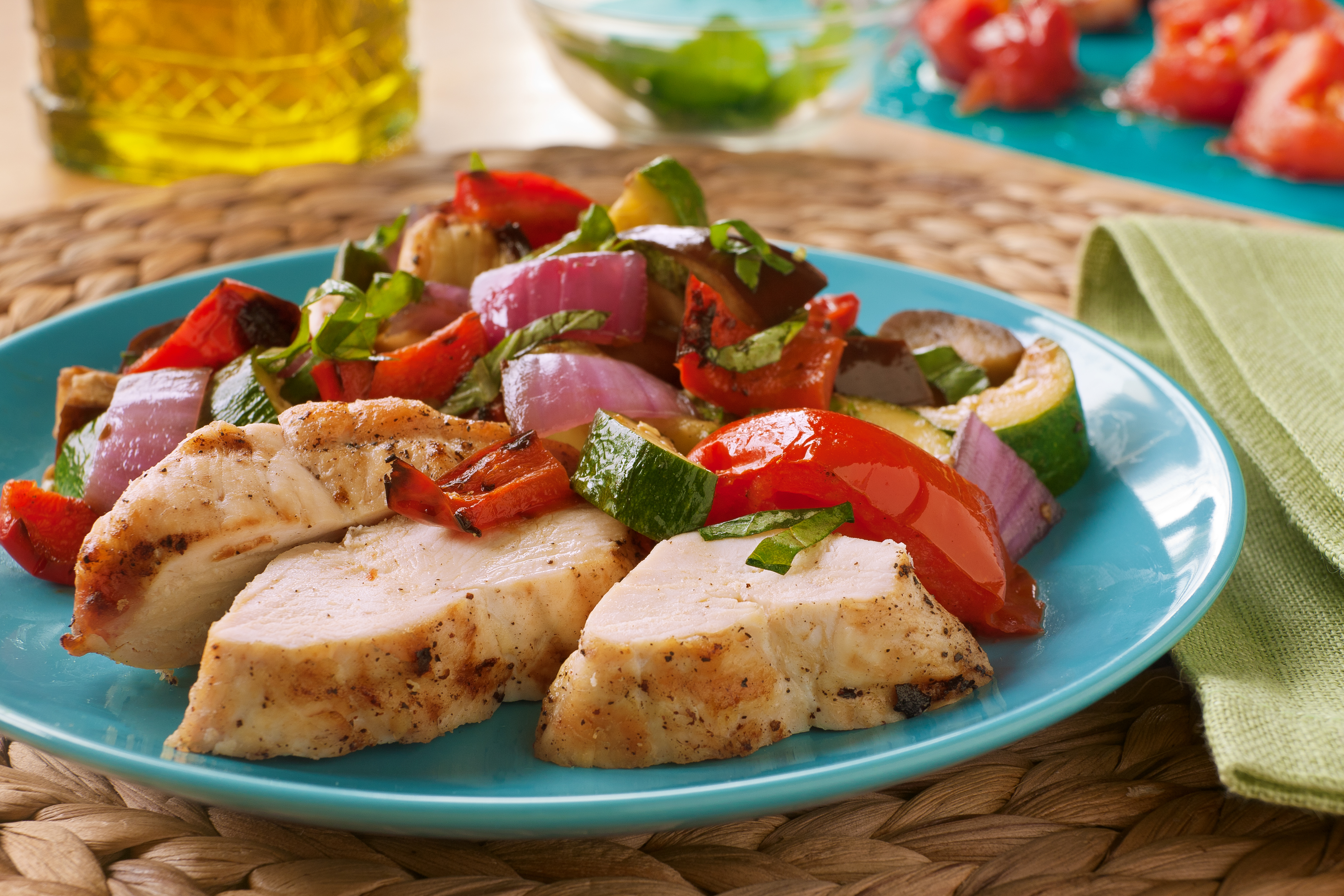Veggies vs. Meat: Health Concerns for Charring

Warmer weather begs for firing up a charcoal grill. In preparation for a barbecue, we shop for the best cuts of meat, marinate them in our favorite sauces with careful attention to the ingredients and put together a meal that almost tastes like summer. Unless you are giving the same attention to the way you grill your meal, however, you be getting more than just the nutrition you are aiming for.
Meat may contain chemicals that are formed when meat is well done, smoked or blackened. These chemicals, which are only found in fish and animal meats and can’t be formed from grilled vegetables, have been shown to cause cancer in animals. The risk to humans needs to be better understood, but experts agree that there is significant potential risk.
How does this happen? It starts with two different compounds: HCAs (heterocyclic amines) and PHAs (polycyclic aromatic hydrocarbons) that are formed when meat and fish are cooked at high temperatures in open flame. Consuming blackened, smoked or charred meats increases your risk for consuming these compounds. Both HCAs and PHAs have been found to change DNA and therefore increase potential for cancer.
There are a few things you can do to limit your exposure to carcinogenic compounds:
Limit the Time on the Grill
Thinner cuts of meat and precooking in the oven are two ways you can reduce the amount of time meat is cooked on the grill at high heat and therefore limits the potential for HCAs and PHAs to form.
Trim the Fat
Trimming fat before grilling is not only more healthful for you, but it also reduces the potential for drippings that cause flare ups (and ultimately charred meat).
Skewer It
Cut down on grilling time by threading small pieces of meat or fish on a skewer. Scallops and shrimp are naturals for skewers. Try alternating pieces of meat, chicken or seafood with bell pepper, onion pieces, zucchini slices, cherry tomatoes, and small mushrooms to create kebabs (and to get your veggies in!).
Marinate Carefully
Thinner, vinegar based marinades are a better choice when it comes to reducing risk of developing potential cancer causing compounds. Thicker, carbohydrate rich sauces (with honey or sugar) are more likely to cause charring.
Hold the Sauce
If traditional barbecue sauce is what you want, hold off until the end to use it and you will get juicy grilled chicken… not dry and charred. Cook the chicken at lower heat and wait until the end to add barbeque sauce to reduce the potential for charring and increase your potential for juicy chicken (double win!).
Avoid Direct Exposure to Open Flame
Use the heat from charcoal, but avoid contact to direct flame to reduce the potential for charring meats.
Flip, Flip, Flip
Overcooking one side of meat can lead to charring on that side; flipping frequently limits this potential. Use tongs or a spatula to flip rather than piercing the meat, which could cause the grill to flare.
Cut off Charred Portions of Meat
While the goal is to prevent charring altogether, it may happen. When it does, remove charred portions of meat to reduce your risk for consuming harmful compounds.
Follow these suggestions and healthy grilling tips and then fire up the grill for a perfect summer meal!